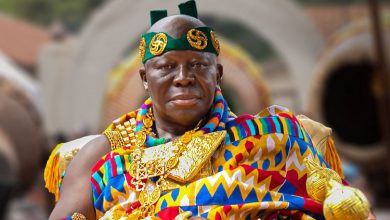NDC organizer sentenced to four years for inciting violence and spreading false information

An Accra Circuit Court has sentenced Mohammed Ibrahim, an NDC branch organizer and self-styled revolutionary leader, to four years in prison for inciting violence and spreading false information.
The verdict, delivered by Her Honour Evelyn E. Asamoah on November 29, 2024, was in response to Ibrahim’s provocative social media posts, which accused security agencies of misconduct and issued threats against a government official.
Charges and Sentence
Ibrahim, who claims to lead a revolutionary group named Kanawu (meaning “Speak and Die”), faced three charges:
- Count One: Publication of False News with Intent to Cause Fear and Alarm to the Public – sentenced to three years under Section 208 of the Criminal Offences Act, 1960 (Act 29).
- Count Two: Threat of Harm – sentenced to four years under Section 74 of the Criminal Offences Act, 1960 (Act 29).
- Count Three: Offensive Conduct Conducive to Breach of Peace – sentenced to three years under Section 207 of the Criminal Offences Act, 1960 (Act 29).
The sentences will run concurrently, resulting in a total of four years in prison.
Case Background
On September 3, 2024, Ibrahim shared a video on social media platforms, including Facebook, X (formerly Twitter), and TikTok, where he made unsubstantiated claims against Ghana’s security forces.
In the video, Ibrahim, wearing a red military-style beret, accused the Ashanti Region Police Service of recruiting “fake police personnel” to kill citizens during the December 7, 2024, General Elections. He also threatened violence and claimed he knew the home address of the Minister for the Interior, Henry Quartey, vowing to target him in case of conflict.
The video drew immediate attention from the Ghana Police Service, which subsequently issued a wanted notice for Ibrahim.
On September 10, 2024, he was arrested at his residence in Sowutuom, where police recovered the red beret seen in the video.
Trial Details
The trial began on September 13, 2024, with the prosecution, led by Superintendent Yirenkyi, presenting three witnesses and submitting 10 exhibits, including the viral video and the red beret.
Ibrahim initially pleaded not guilty to the charges but admitted during police interrogation that he had recorded the video. His attorney, Francis-Xavier Sosu, requested an expedited hearing, which was approved.
In her sentencing, Judge Evelyn E. Asamoah stressed the seriousness of Ibrahim’s actions, noting that his statements posed a risk of public unrest and could endanger lives.
The court’s decision aims to deter individuals from using social media for harmful and reckless purposes.
This case underscores the increasing concern over the misuse of social media to spread false information and incite violence, especially with Ghana’s general elections approaching. Authorities have reiterated their dedication to maintaining law and order during this period.
The sentence also reaffirms the judiciary’s commitment to holding individuals accountable for actions that threaten national security and public peace.





